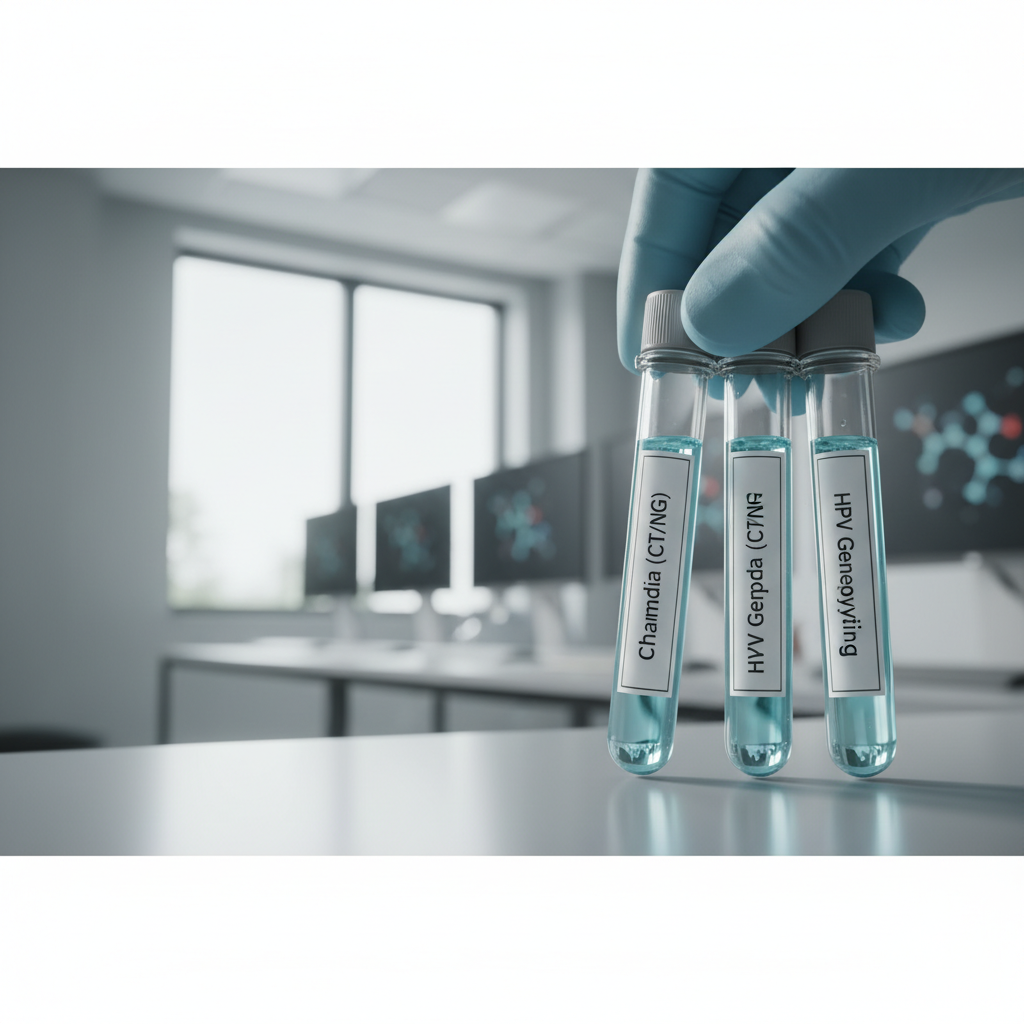
Silent Infections: STDs That Show No Symptoms
If you've ever worried because you feel fine but are unsure about your sexual health, you're not alone. Many sexually transmitted infections (STIs/STDs) — notably chlamydia and human papillomavirus (HPV) — often cause no symptoms. That means infections can be present for months or years without you realizing it, increasing the chance of complications and onward transmission. This article explains which STDs are commonly asymptomatic, how they are detected, what risks they pose, and practical steps residents of Dubai can take to protect themselves.
Which STDs often have no symptoms?
Several common STDs can be asymptomatic, including:
- Chlamydia: Frequently shows no signs, particularly in women. When symptoms do occur they may include abnormal discharge or pelvic pain.
- Human papillomavirus (HPV): Many HPV infections cause no symptoms and are cleared by the immune system. Certain high-risk HPV types can persist and lead to cervical or other cancers over years.
- Gonorrhoea: Can be asymptomatic, especially in women and with rectal or throat infections.
- HIV: Early infection can be missed if symptoms are mild or absent; chronic infection can be asymptomatic for years.
- Trichomoniasis and genital herpes: May be mild or asymptomatic in some people.
Knowing that an infection can be silent highlights the importance of screening and protective practices. It's always best to consult a healthcare professional for a diagnosis.
How common are silent STDs in Dubai and the UAE?
Published prevalence varies by infection, population, and screening practices. Globally, chlamydia and HPV are among the most common sexually transmitted infections, and many cases go undiagnosed because they cause no symptoms. In the UAE, comprehensive national screening data are limited publicly, but clinics and screening programs in Dubai report regular detection of asymptomatic infections during routine checks.
Local sexual health services and travel clinics in Dubai recommend targeted screening for sexually active individuals, particularly younger adults, pregnant women, and people with new or multiple partners. Our doctors at Zaincura can provide a personalized assessment of your risk and testing needs.
How are asymptomatic STDs like chlamydia and HPV diagnosed?
- Chlamydia: Diagnosed with nucleic acid amplification tests (NAATs) on urine or swab samples. NAATs are highly sensitive and can detect infection even when there are no symptoms.
- HPV: There is no single test for all HPV types. Women are screened for high-risk HPV types via cervical screening (Pap smear and HPV DNA tests). Many HPV infections are transient; persistent high-risk types are the concern for cancer development.
- Other STDs: Gonorrhoea, HIV, and others also have reliable laboratory tests (NAATs, serology, antigen tests) that detect infection before symptoms occur.
Regular screening is the most effective way to find silent infections early. Tests are simple, confidential, and widely available in Dubai clinics, including Zaincura. It's always best to consult a healthcare professional for a diagnosis.
What complications can arise from untreated silent infections?
Because silent infections often go untreated, they can lead to complications such as:
- Pelvic inflammatory disease (PID), infertility, and ectopic pregnancy risk after untreated chlamydia or gonorrhoea.
- Persistent high-risk HPV infections that increase the long-term risk of cervical and other anogenital or oropharyngeal cancers.
- Ongoing transmission to sexual partners, including newborns during childbirth in some infections.
- For HIV, untreated infection eventually causes immune system damage and serious opportunistic infections.
Timely detection and treatment reduce these risks significantly. Our doctors at Zaincura can provide a personalized assessment and treatment plan if needed.
How can I reduce my risk of asymptomatic STDs?
Practical steps to lower risk include:
- Use condoms consistently and correctly for vaginal, anal, and oral sex — they reduce but do not eliminate risk.
- Get vaccinated: HPV vaccination is highly effective at preventing infection with the most dangerous HPV types. Hepatitis B vaccination is also recommended where appropriate.
- Regular screening: Routine testing based on sexual history, age, pregnancy status, and partner risk helps catch silent infections early.
- Limit partners and discuss sexual health openly with partners and healthcare providers.
- Avoid self-treatment and seek professional testing after possible exposure; some infections require specific antibiotics or antiviral management.
These steps are practical for residents of Dubai and can be discussed confidentially with clinicians at Zaincura.
When to Visit a Doctor at Zaincura
You should book an appointment with a healthcare professional if you:
- Recently had unprotected sex or a new sexual partner and want screening.
- Are planning pregnancy or are pregnant (routine screening is recommended).
- Have persistent or unusual genital symptoms, pelvic pain, abnormal bleeding, or discharge.
- Are advised to test by a partner or sexual health contact tracing service.
Even without symptoms, screening is prudent when risk factors are present. Our doctors at Zaincura can provide a personalized assessment. It's always best to consult a healthcare professional for a diagnosis. If you’re in Dubai and concerned, contact Zaincura to arrange confidential testing and to discuss prevention, including HPV vaccination and safe sex counseling.
Conclusion
Silent infections — notably chlamydia and HPV — are common and can quietly affect health if left unchecked. Regular screening, vaccination, safe-sex practices, and early consultation are the best defenses. Remember, absence of symptoms does not guarantee absence of infection. Our team at Zaincura is available to help you understand your risk and arrange testing. It's always best to consult a healthcare professional for a diagnosis. Our doctors at Zaincura can provide a personalized assessment.
References
- World Health Organization (WHO). Sexually transmitted infections (STIs). https://www.who.int/news-room/fact-sheets/detail/sexually-transmitted-infections-(stis)
- Centers for Disease Control and Prevention (CDC). STDs: Facts and Information. https://www.cdc.gov/std/
- CDC. Chlamydia – CDC Fact Sheet. https://www.cdc.gov/std/chlamydia/default.htm
- CDC. Human Papillomavirus (HPV) – CDC. https://www.cdc.gov/hpv/
- NHS. Chlamydia. https://www.nhs.uk/conditions/chlamydia/
- Mayo Clinic. HPV Infection: Overview. https://www.mayoclinic.org/diseases-conditions/hpv-infection/symptoms-causes/syc-20351588
- PubMed / peer-reviewed reviews on STIs and asymptomatic infection (searchable via https://pubmed.ncbi.nlm.nih.gov/)
(Information in this article is for educational purposes and does not replace a clinical consultation.)